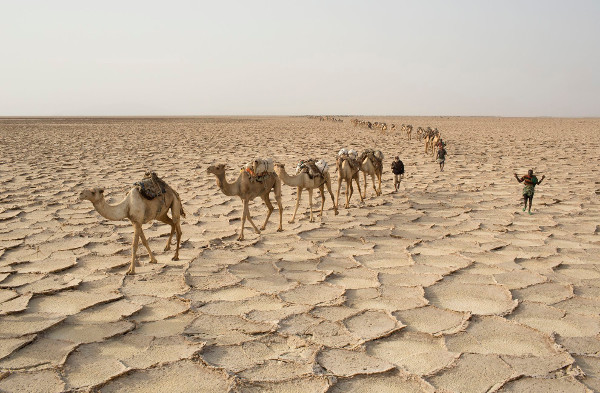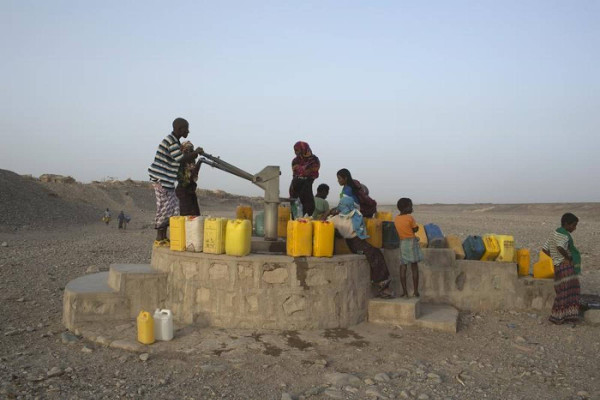Discover life in the harshest land on Earth, where temperatures often exceed 50 degrees Celsius
Danakil Basin (Danakil Depression) covers an area of about 100,000 square kilometers, in the Danakil Desert in Ethiopia is considered the hottest place in the world. The daytime temperatures here often exceed 50 degrees Celsius, making fresh water extremely precious.
- Not the Bermuda triangle, this is the most horrible "black cemetery" in the world
- Discover the mysteries of the most ghost island in the world

With temperatures ranging from 37 to 62 degrees Celsius, the sun is always fierce, causing the land to crack into pieces.Anyone who passes by also gets dust on the skin, lips, eyes and mouth.

The annual rainfall here is very low, only about 100-200mm so the water is extremely scarce and precious.

Danakil is also known to be one of the world's hottest, driest and lowest places (less than 125m above sea level).

Besides, Danakil is the convergence of lava volcanoes erupting into lakes, hot springs with geysers are always boiling, red rocks, sulfur ore and salt mines.

This extreme climate is the "home" of Afar people.People here rely on the exploitation and trading of mineral salts.

For Africans, salt is important like money.Afar people use traditional methods and tools such as hoes and ropes to exploit salt.They cut big salts and used camels to transport them to Mekele market.This journey will take up to a week.Their food only has small bread and water.

Here, salt mining is a quite dangerous job.High temperatures can be fatal to miners, sometimes earthquakes happen to swallow both people and camels.
The process of salt extraction by Afar people in the harshest land in the world.

Afar people are nomads.They live in movable wooden huts.In addition to salt exploitation, they also raise livestock such as goats, donkeys and small camels.

Awash, one of the most unique rivers in the world, does not flow into the sea but flows straight from the Ethiopian plateau to the lakes in the basin.The majority of people's lives depend on this river, the narrow fertile belt around it is where people can graze cattle.
You should read it
- ★ The 'derelict' lands on Earth, no country wants
- ★ Postpartum depression: Causes, signs of early identification and prevention
- ★ What is Data Mining? Data Mining Is it legal?
- ★ Leading the trend, ASUS officially launched a pair of video mining cards specializing in mining
- ★ These are the reasons you should cut down on salt in your diet